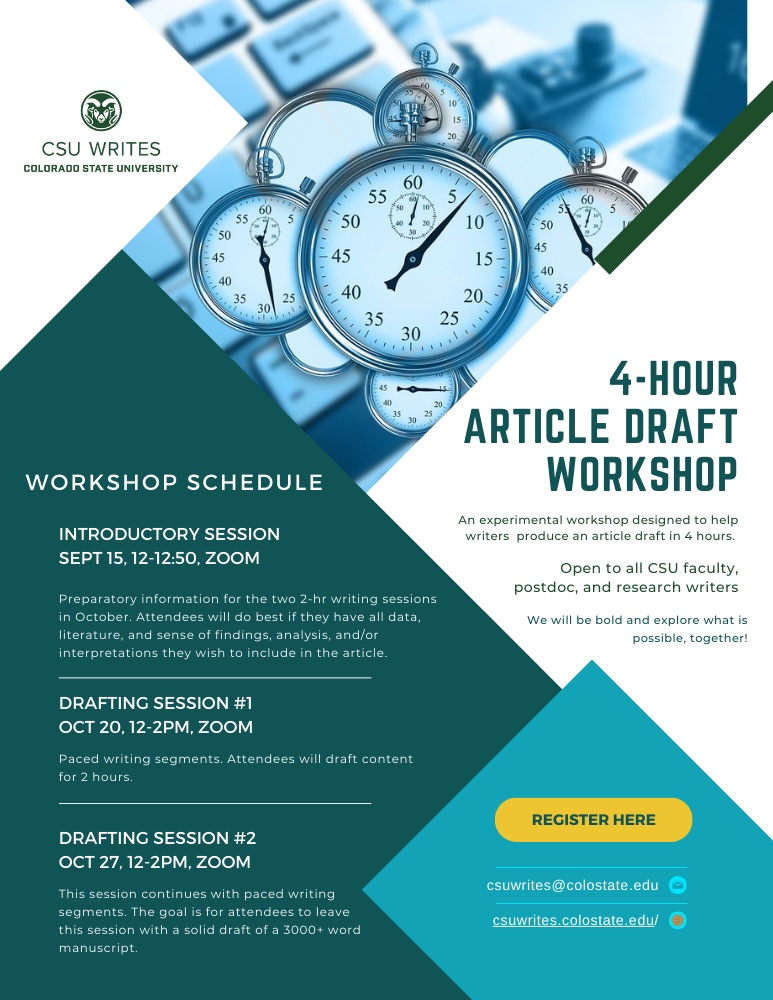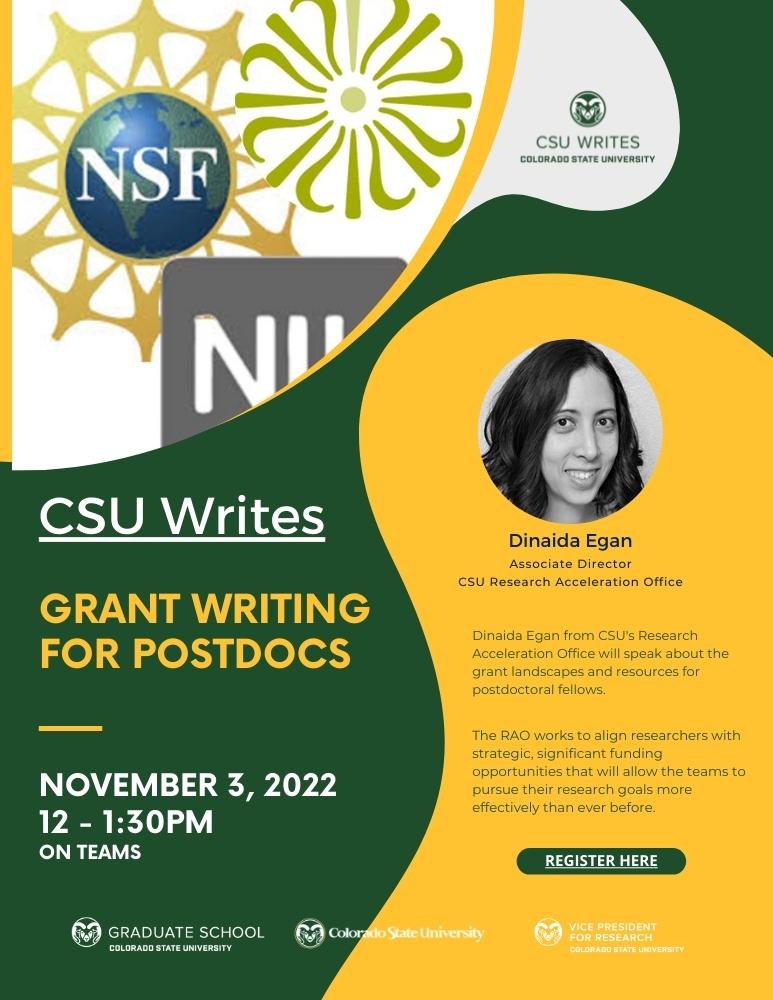“Be messy and complicated and afraid and show up anyway.”
– Glennon Doyle Melton
Welcome back to campus, writers! The Spring 2023 semester is officially in session. Campus is buzzing with excitement and our calendars are rapidly filling with classes, meetings, and other engagements. We’ll get to our writing projects at some point, right? Showing up to write definitely helps.
WHAT IS show up & write. ?
show up & write. is a drop-in writing initiative that helps researchers and graduate students to prioritize writing in their schedules and build momentum on projects over a semester. Each session lasts for 2 hours and are scheduled from 8-10, 10-12, 12-2, and 2-4 Monday through Friday.
The sessions are proctored by a CSU faculty member, postdoc, or graduate student volunteer who has committed to proctor and write during that time so that they, too, can make steady progress on their projects. Sessions take place on campus in the Visual Arts building studio H112 and virtually via a Teams meeting.
You can expect each session to begin with a few minutes to get settled and set goals for the session. Then writers… well … write.
show up & write. FOR INTERNATIONAL SCHOLARS
If you are an international writer, International Writes will be hosting a session on Wednesdays from 3:30-5:30 in Student Services RM 133.
SIGN UP TO PROCTOR
If you are interested in the additional accountability that proctoring a session offers, let us know by completing the form at the bottom of our webpage HERE.
THE SCIENCE OF show up & write.
Writing—regardless of discipline, writer’s skill level, or genre complexities—can be challenging. For individual researchers and academics who juggle many professional duties, the challenges of creating the time and space to write can be equally great, if not greater, than the very task of writing itself. Education scholar and research dean, Rowena Murray (2015) points out that writing can feel solitary but that it is mostly relational. “Social writing” or write-together sessions, according to Murray, can be instrumental for “changing writing behaviours” positively and for facilitating a complex “management of competing tasks” (p. 134). show up & write. is a dedicated space on campus for writers to engage in these write-together sessions, have a cup of coffee, and make progress on their writing projects.
All at CSU are welcome to show up & write. This is an inclusive campus space where we come together to support each other as writers. You can be a chemist working on a grant proposal, a graduate student working on a thesis, or a staff member working on a novel — you are welcome here!
write early. often. better. together.









